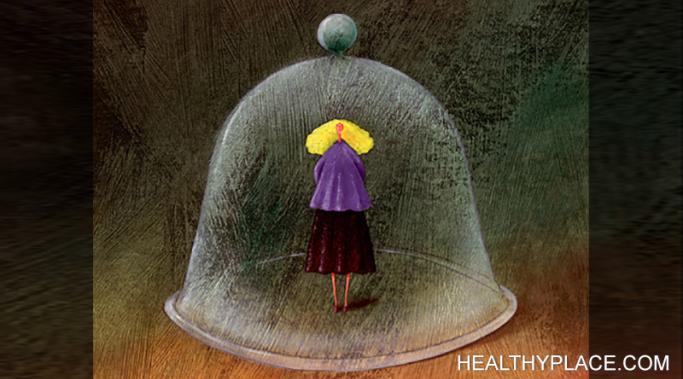When people ask what I do, I tell them I run a freelance writing business. I'm too proud--and afraid--to tell them my major income comes from Social Security disability. If I do that, I often hear "You look fine to me." Then I'll need to explain I'm on Social Security disability due to a psychiatric condition, in which case I fear hearing "Isn't that all in your head?" There's a heavy stigma against receiving social security disability, and a bigger stigma against receiving social security disability for a mental illness.
Stigma of BPD
The stigma attached to mental illness is powerful because of ignorance. But is living openly with mental illness in an effort to change the stigma a good idea? More Than Borderline's Becky Oberg considers this.
While I would recommend being open about one's own struggles as a way to fight stigma, which is usually due to ignorance, openness is not for everyone. Ultimately, each person has to decide for himself or herself what is right. I understand the reasons for keeping quiet about a diagnosis, especially some of the more misunderstood ones. Yet the only way we can hope to get rid of stigma is by education, and education begins with openness.
While substance abuse may or may not be present in one person's case, it is common enough to warrant suspicion on the part of the doctor, and this suspicion affects what kind of medical treatment is received.
Recently I spent the night in the psychiatric emergency room. While I was there, the police brought a suicidal drunk woman in. Short version: she created a huge disruption, refused treatment, tried to leave and was eventually arrested for public intoxication.
Mental illness, especially when combined with a substance abuse disorder, is an easy way to wind up in jail.
After last week's post, Gus123 had this to say:
if a “regular doc” finds out one has a mental illness diagnosis, they will blame all one’s ills on “imaginary” causes, discounting one’s judgement and intellect, regardless of the true nature of thing.
He hit the nail on the head. A study revealed that almost half of all patients with schizophrenia reported that their family doctors took their physical symptoms less seriously when the doctors were aware of the patient's psychiatric diagnosis. My experience is that they do the same for patients with borderline personality disorder.
There's talk of privatizing the state hospital system. That strikes me as a bad idea. We already have enough mental health services that run with a skeleton staff, minimal oversight, and an emphasis on the bottom line.
While a personality test is legal, a test designed for clinical diagnosis is not. Saterfiel and Associates explains "The courts have consistently ruled against the general use of those psychological assessments in the business environment. The use of clinically inclined instruments would also fly in the face of the Americans With Disabilities Act since they are mainly designed to diagnose abnormal behavioral patterns. The ADA states that an employer 'shall not conduct a medical examination or make inquiries as to whether such applicant is an individual with a disability or as to the nature and severity of such disability.'"
Some people believe that the term "borderline" is stigmatizing and inaccurate. Should BPD be renamed? If so, what should it be called?
May is Borderline Personality Disorder (BPD) Awareness Month. While there are many sites with excellent clinical descriptions or offer advice for the loved ones of a person with BPD, there is a lack of information on BPD from the point of view of a person with BPD. So, in honor of BPD Awareness Month, here's what BPD is like for me.







